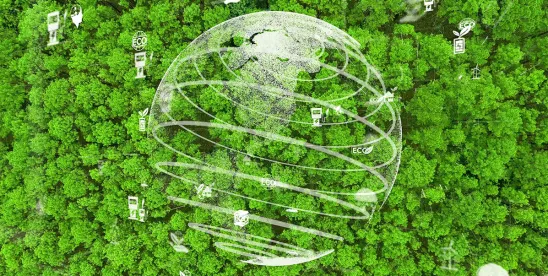There is a lot of buzz around clean technology, distributed energy resources (DERs), microgrids, and other technological innovations in the renewable energy and clean transport industries and how these developments can contribute to solving long-standing environmental justice issues. As these innovations develop, energy markets will undergo substantial changes to which consumers and industry participants alike will need to adapt and leverage. Every other week, K&L Gates’ The Energizer will highlight emerging issues or stories relating to the use of DERs, energy storage, emerging technologies, hydrogen, and other innovations driving the energy industry forward.
BMW EXPANDS ELECTROMOBILITY PLAN AND MANUFACTURING FOOTPRINT IN SOUTH CAROLINA
On 19 October, BMW Group (BMW) unveiled its plans to invest a total of US$ 1.7 billion in electric vehicle operations in South Carolina as a part of its Electromobility1 Plan. BMW Group will invest US$1 billion to build electric vehicles at its manufacturing hub in Spartanburg, South Carolina, and another US$700 million to build a new high-voltage battery assembly facility in partnership with Japanese manufacturer Envision Automotive Energy Supply Corporation (Envision AESC). The South Carolina Coordination Council for Economic Development has also granted US$65 million to Spartanburg County to assist with project-related costs.
BMW’s partnership with Envision AESC will allow BMW to locally source its new sixth-generation round lithium-ion battery cells, specifically designed for the next generation of electric BMW vehicles. This updated battery will increase energy density by more than 20%, improve charging speed by up to 30%, and enhance range by up to 30%. BMW notes that the increased efficiency in battery performance will not come at the cost of the company’s commitment to sustainability. BMW’s use of secondary raw materials combined with BMW’s utilization of renewable energy in the production process will reduce average CO2 emissions usually seen in battery cell production by 60%.
These investments further BMW’s Electromobility Plan, in which BMW hopes to convert at least half of its vehicles to fully electric models by 2030.
NJ BPU SELECTS OFFSHORE WIND TRANSMISSION PROJECTS UNDER PJM’S STATE AGREEMENT APPROACH
On 26 October, the New Jersey Board of Public Utilities (NJ BPU) selected transmission projects that will provide a transmission solution for offshore wind projects to be located off the coast of New Jersey. PJM Interconnection L.L.C.’s (PJM’s) State Agreement Approach (SAA) allows for one or more states to solicit and bear cost responsibility for transmission projects that will support state public policy goals, such as offshore wind. New Jersey is the first state to utilize the SAA.
NJ BPU made its selections from 80 proposed projects submitted by 13 developers. The total estimated cost of the upgrades is US$1.08 billion. The largest of the selected projects is the Larrabee Tri-Collector Solution jointly proposed by Mid-Atlantic Offshore Development LLC and Jersey Central Power & Light Co. (JCP&L) at an estimated cost of US$504 million. This project includes onshore upgrades consisting of (1) construction of a new substation adjacent to the existing JCP&L Larrabee substation, and (2) upgrade of existing rights-of-way to distribute the energy to three existing points of interconnection. The new substation will allow for interconnection of high-voltage direct current cables to export power from the offshore wind projects at a single land-based point of interconnection. Although these upgrades will be located onshore, NJ BPU recognized that the upgrades could further facilitate development of a future offshore-networked transmission solution, often referred to as a “backbone.”
It is anticipated that the transmission upgrades selected by NJ BPU will provide transmission capacity for 6,400 MW of offshore wind generation. Until recently, New Jersey had targeted 7,500 MW of offshore wind generation by 2035. However, on 21 September 2022, Governor Phil Murphy signed an executive order that increased this target to 11,000 MW by 2040. NJ BPU plans to initiate a second SAA process to explore additional transmission solutions that could accommodate this increased offshore wind target.
NEXTERA ENERGY INVESTS US$1.1 BILLION IN RENEWABLE NATURAL GAS PRODUCTION
On 28 October, NextEra Energy (NextEra) announced that it has agreed to spend US$1.1 billion to acquire renewable natural gas (RNG) facilities that convert waste in landfills to methane and hydrogen to be used to generate electricity. NextEra will purchase over 30 RNG facilities from Energy Power Partners. The transaction is expected to close in early 2023.
NextEra is already one of the largest wind and solar energy producers in North America, and this acquisition marks what the energy company considers “a large step forward” in its RNG strategy. According to NextEra, this major investment is a result of the incentives provided under the recently passed Inflation Reduction Act, wherein projects like these RNG facilities now qualify for investment tax credits.2
FOOTNOTES
1 Electromobility is the concept of using electric circuits comprised of rechargeable energy storage systems, power electronic converters, and other associated connectors and wiring for transporting people and goods with a view to support sustainable development.
2 For more information about the Investment Reduction Act, please see our K&L Gates summary of the New Opportunities for the Energy Industry at https://www.klgates.com/Welcome-to-the-Tax-Credit-Revolution-New-Opportunities-for-the-Energy-Industry-in-the-Inflation-Reduction-Act-8-18-2022.
Olivia C. Ashé also contributed to this article.





 />i
/>i
